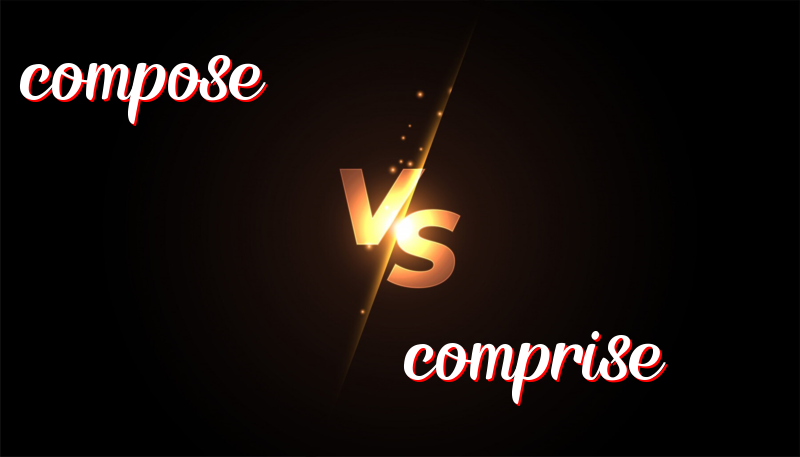Compose Yourself to Comprise Clarity
Compose vs. Comprise
The words “compose” and “comprise” are used to talk about parts and whole things. They can be confusing, but I will help you understand them.
History
“Compose” comes from a Latin word that means “to put together.” “Comprise” comes from a French word that means “to include.” These words have been used in English for a long time.
How to Use Them
Compose
When you use “compose,” you talk about putting parts together to make a whole. It often means “made up of.”
Example sentences:
- The cake is composed of flour, sugar, and eggs.
- The band is composed of five musicians.
- The puzzle is composed of 50 pieces.
- The committee is composed of teachers and parents.
- The song is composed of different instruments.
Comprise
When you use “comprise,” you talk about the whole thing including all its parts. It often means “includes.”
Example sentences:
- The cake comprises flour, sugar, and eggs.
- The band comprises five musicians.
- The puzzle comprises 50 pieces.
- The committee comprises teachers and parents.
- The song comprises different instruments.
Trick to Remember the Difference
One trick to remember is to think: “The whole comprises the parts. The parts compose the whole.”
Summary
“Compose” means to put parts together to make a whole. “Comprise” means the whole includes its parts.
Remember:
- The cake is composed of ingredients.
- The cake comprises ingredients.
Now you can use “compose” and “comprise” correctly!

Leave a Reply
You must be logged in to post a comment.